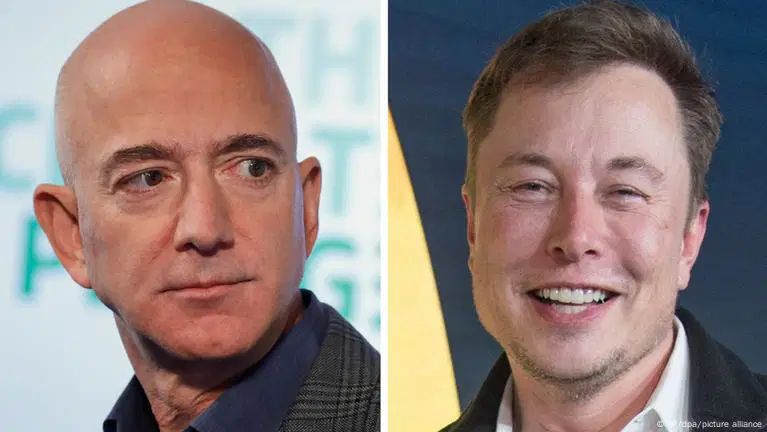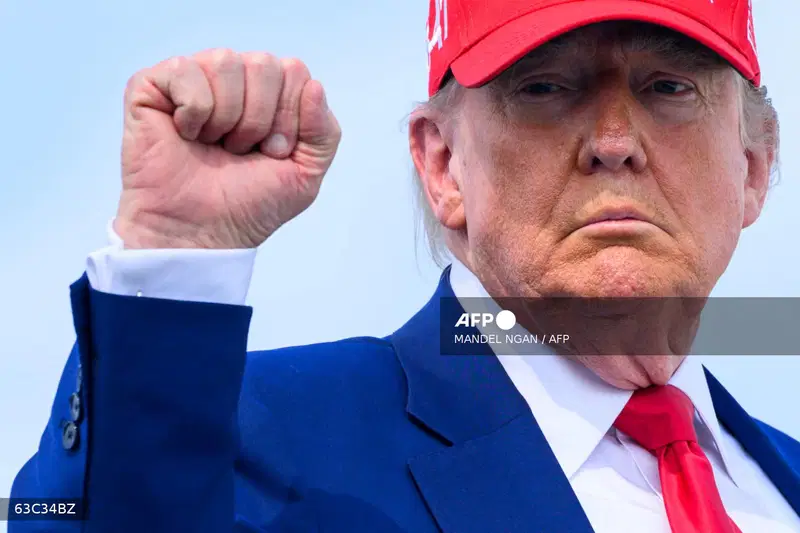Headline
Top 10 Countries With The Most Billionaires In 2024

Billionaire wealth is at an all-time high with some countries boasting of close to 800 billionaires and some struggle to count 20
Forbes’ 38th list shows 2,781 billionaires with a combined $14.2 trillion. This is 141 more billionaires and $2 trillion more wealth than last year.
In 2023, the list saw $900 billion in added wealth, and many of the world’s richest have grown even wealthier.
The U.S. leads with tech and finance billionaires. China, India, Germany, and Russia follow with wealth in tech, resources, and manufacturing. In Europe, countries like the UK, France, and Italy have their wealth mainly in finance, luxury, and industry.
Here’s a look at the top billionaire countries and some of their top billionaires.
United States
Leading globally, the U.S. has around 813 billionaires. Many come from technology, finance, and entertainment industries. Some of its billionaires include:
Elon Musk ($245.8 billion)– Founder of Tesla, SpaceX, and other ventures, Musk’s fortune has soared due to innovations in tech and space.
Jeff Bezos ($206.6 billion)– He is the founder of Amazon and his fortune expanded from the e-commerce and cloud computing empire.
Warren Buffett ($145 billion) – Known as the “Oracle of Omaha,” Buffett leads Berkshire Hathaway with investments in diverse sectors.
Bill Gates ($106.6 billion) – He is the co-founder of Microsoft.
China
China follows closely with about 406 billionaires, thanks to its booming tech and manufacturing sectors. Some of its billionaires are:
Zhong Shanshan ($52 billion) – He is the founder of Nongfu Spring, China’s largest bottled water company, with a fortune made through consumer goods.
READ ALSO: Top 10 Countries In Africa Where Workers Earn Highest Salaries
Ma Huateng (Pony Ma) ($47.4 billion) – He is the founder of Tencent, the social media and gaming giant, which has contributed significantly to his wealth.
Jack Ma ($25.8 billion) – Co-founder of Alibaba, China’s leading e-commerce platform, Jack Ma is a popular name among Chinese billionaires.
India
India has seen rapid growth in its billionaire count which stands at 200, driven by industries such as technology, consumer goods, and pharmaceuticals. Here are some of its billionaires:
Mukesh Ambani ($107.7 billion) – He is the chairman of Reliance Industries and his wealth spans energy, telecom, and retail.
Gautam Adani ($80.4 billion) – He is known for his conglomerate Adani Group, and his wealth comes from infrastructure, energy, and ports.
Shiv Nadar ($41 billion) – Founder of HCL Technologies, Nadar is among the tech billionaires pushing India’s economy forward.
Germany
Germany’s billionaire wealth is strongly rooted in manufacturing and technology, with some billionaires maintaining family-held businesses. The country has approximately 132 billionaires. Some of their billionaires are:
Beate Heister & Karl Albrecht Jr. ($25.9 billion) – Heirs of the Aldi supermarket chain, the Albrecht family has long been part of Germany’s wealth.
Dieter Schwarz ($37 billion) – Owner of Lidl and Kaufland, Schwarz is a major player in European grocery retail.
Susanne Klatten ($22.3 billion) – She is a key shareholder in BMW and an heir to the pharmaceutical company Altana.
READ ALSO: 10 Most Corrupt Countries In Africa In 2024
Russia
Russia’s billionaires are primarily concentrated in energy, metals, and mining industries, with wealth tied closely to natural resources. The country boasts of 120 billionaires.
Vladimir Potanin ($23.7 billion) – A leading shareholder in Norilsk Nickel, Potanin’s wealth is deeply rooted in mining and metals.
Leonid Mikhelson ($27.4 billion) – He is the CEO of Novatek and one of Russia’s wealthiest, thanks to his investments in natural gas.
Alexey Mordashov ($25.5 billion) – He is the owner of Severstal and his wealth is based on steel and energy.
Italy
Italy’s billionaires are often tied to fashion, infrastructure, and manufacturing. The country currently has 73 billionaires, and some of the popular ones include:
Giovanni Ferrero (43.8 billion)– Chairman of Ferrero Group, known for Nutella and Ferrero Rocher, his wealth is rooted in the confectionery business.
Leonardo Del Vecchio ($25 billion) – Founder of Luxottica, the world’s largest eyewear company, Del Vecchio has long been a staple of Italian wealth.
Hong Kong
Hong Kong is home to 67 billionaires with businesses spanning across real estate, finance, and technology. Some of its billionaires are:
Li Ka-shing ($36.8 billion) – Known as “Superman” in Hong Kong, his wealth stems from infrastructure, real estate, and telecommunications.
Lee Shau Kee ($29.3 billion) – Founder of Henderson Land Development, Lee is a major figure in Hong Kong’s real estate scene.
Henry Cheng ($28.9 billion) – Chairman of New World Development, Cheng’s fortune is rooted in real estate and infrastructure.
Canada
Canada’s 67 billionaires are primarily involved in media, e-commerce, and real estate. Here are some:
David Thomson & family ($61.3 billion) – Owners of Thomson Reuters, the Thomson family are leaders in media and information services.
READ ALSO: 7 Countries With No Railway Lines And Why
Joseph Tsai ($9.7 billion) – He is the co-founder of Alibaba and owner of the Brooklyn Nets. Tsai represents Canadian investments in tech and sports.
Jim Pattison ($9.3 billion) – His conglomerate, the Jim Pattison Group, spans grocery, media, and automotive services.
United Kingdom
The UK’s billionaire population of 55 comes from various sectors, including finance, real estate, and retail. Some of the popular ones include:
James Ratcliffe ($16.5 billion) – Founder of chemical giant Ineos, Ratcliffe is among the wealthiest in the UK.
Hugh Grosvenor ($12.8 billion)– Known as the Duke of Westminster, Grosvenor’s wealth comes from extensive real estate holdings.
Sir Richard Branson ($6.5 billion) – Founder of the Virgin Group, Branson’s wealth spans industries from music to travel.
France
France’s billionaire population is largely in luxury goods, a sector in which it leads globally. France has 53 billionaires, and some of them are:
Bernard Arnault ($177.9 billion) – Chairman of LVMH, Arnault is often among the world’s wealthiest due to luxury brands like Louis Vuitton and Sephora.
Francoise Bettencourt Meyers ($87.2 billion)– Heir to the L’Oréal empire, she is among the wealthiest women globally.
Francois Pinault ($20.9 billion)– Founder of Kering, which owns luxury brands like Gucci and Saint Laurent, Pinault’s fortune is rooted in high-end fashion.
Headline
U.S. Lawmaker Reacts To Nigeria, U.S. Airstrikes

United States Congressman, Riley Moore, has stated that President Donald Trump is determined to put an end to the killing of Christians in Nigeria, warning that further action may follow if the violence persists.
Moore made the statement on Friday via his official X handle.
According to the lawmaker, the strike represents the first step in addressing what he described as the ongoing slaughter of Christians and the broader security crisis affecting Nigerians across religious and ethnic lines.
READ ALSO:US Dept Of War Shares Video Of Air Strikes In Nigeria
“President Trump has been clear that the killing of Christians in Nigeria must end,” he said.
He that the administration’s resolve on the matter should not be underestimated.
“As I stated at the outset: Do not test President Trump‘s resolved in this matter.
READ ALSO:JUST IN: US Forces Bomb Terrorists Camps In Nigeria
“Tonight’s strike in coordination with the Nigerian government is just the first step to ending the slaughter of Christians and the security crisis affecting all Nigerians,” he said.
He stressed that the operation signals a stronger stance by the United States in support of Nigeria’s efforts to tackle terrorism and violent extremism, noting that further measures could be taken if the situation does not improve.
Headline
US Dept Of War Shares Video Of Air Strikes In Nigeria

A video footage of the US military air strikes in Nigeria has emerged.
The video was released by the US Department of War following its air strikes against terrorists in Sokoto.
Earlier, the US secretary of War, Pete Hegseth had confirmed that military air strikes hit terrorists in Nigerians, saying it was deadly.
Later on, the US. African Command, confirmed that it conducted the attacks described as very deadly by President Donald Trump.
Trump said he was only keeping the promise he made earlier last month to strike the terrorists he believes are killing innocent Christians.
READ ALSO:JUST IN: US Forces Bomb Terrorists Camps In Nigeria
Although described as powerful and deadly, the casualty caused by the attack is yet to be released.
Explaining further, security expert, Brant Philip, said the strikes may have been launched “from the USS Paul Ignatius, using a Tomahawk missile.”
The Nigerian government through its ministry of foreign affairs has also confirmed that the strikes were successful.
Watch video here
Headline
JUST IN: US Forces Bomb Terrorists Camps In Nigeria

United States President Donald Trump said US forces conducted deadly strikes against Islamic State terrorists in northwestern Nigeria, and vowed more attacks if the militants keep killing Christians.
“I have previously warned these Terrorists that if they did not stop the slaughtering of Christians, there would be hell to pay, and tonight, there was,” Trump posted on his Truth Social platform, adding that “the Department of War executed numerous perfect strikes.”
READ ALSO:JUST IN: Kano Lawmaker, Sarki Aliyu Daneji, Dies Hours After Colleague’s Passing
Trump stated that the Department of War “executed numerous perfect strikes, as only the United States is capable of doing. Under my leadership, our Country will not allow Radical Islamic Terrorism to prosper.”
The US president wished everyone Merry Christmas, “including the dead Terrorists, of which there will be many more if their slaughter of Christians continues.”
Details later.

 News4 days ago
News4 days agoPHOTOS: New Era In Furupagha-Ebijaw As Okpururu 1 Receives Staff Of Office

 News3 days ago
News3 days agoUBTH CMD Marks 120 Days In Office, Expresses Commitment To Providing Conducive Working Environment

 News3 days ago
News3 days agoFIRS Confirms NIN As Tax ID

 News4 days ago
News4 days agoOPINION: Gumi And His Terrorists

 News4 days ago
News4 days agoFG Declares Public Holidays For Christmas, New Year Celebrations

 Metro3 days ago
Metro3 days agoFintiri Pardons Man Sentenced To Death For ‘Killing Herdsman In Self-defence’, Others

 News4 days ago
News4 days agoOPINION: Christmas And A Motherless Child

 News3 days ago
News3 days agoOPINION: My Man Of The Season

 News2 days ago
News2 days agoJUST IN: Kano Lawmaker, Sarki Aliyu Daneji, Dies Hours After Colleague’s Passing

 News3 days ago
News3 days agoKWAM 1 Withdraws From Awujale Race, Ends Court Challenge






























